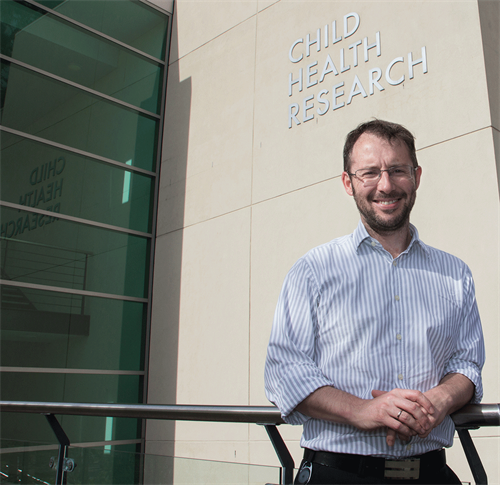Search
Research
High concentrations of middle ear antimicrobial peptides and proteins are associated with detection of middle ear pathogens in children with recurrent acute otitis mediaElevated antimicrobial proteins and peptides and cytokines in middle ear effusion are a marker of inflammation and bacterial persistence
Research
SCN1A Variants in vaccine-related febrile seizures: A prospective studyPathogenic SCN1A variants may be identified in infants with vaccine-proximate febrile seizures
Research
Influenza C infections in Western Australia and Victoria from 2008 to 2014Comparison of Influenza C viruses detected from Australian clinical samples with Influenza C viruses detected in other parts of the world in recent years
Research
Prior human papillomavirus-16/18 AS04-adjuvanted vaccination prevents recurrent high grade cervical intraepithelial neoplasia after definitive surgical therapyWomen who undergo surgical therapy for cervical lesions after vaccination with the HPV-16/18 vaccine may continue to benefit from vaccination
Research
Human alkaline phosphatase dephosphorylates microbial products and is elevated in preterm neonates with a history of late-onset sepsisThe aim of our study was to characterize the activity of TNAP on TLR agonists and assess the concentrations of plasma ALP during late-onset sepsis in newborns.

News & Events
Whooping cough vaccine could be a new weapon in the fight against food allergiesResearchers from The Kids Research Institute Australia and Curtin University will use a $3.9 million grant from the National Health and Medical Research Council to investigate whether a type of whooping cough vaccine could provide bonus protection against food allergies and eczema.
Research
Infant, maternal and demographic predictors of delayed vaccination: A population-based cohort studyReceiving vaccines at or close to their due date (vaccination timeliness) is a now key measure of program performance. However, studies comprehensively examining predictors of delayed infant vaccination are lacking. We aimed to identify predictors of short and longer-term delays in diphtheria-tetanus-pertussis (DTP) vaccination by dose number and ethnicity.
Research
Nirsevimab immunisation of infants and respiratory syncytial virus (RSV)-associated hospitalisations, Western Australia, 2024: a population-based analysisChristopher Peter Hannah Blyth Richmond Moore MBBS (Hons) DCH FRACP FRCPA PhD MBBS MRCP(UK) FRACP OAM BSc (Hons) GradDipClinEpi PhD Centre Head,
Research
Epidemiology and mortality of staphylococcus aureus Bacteremia in Australian and New Zealand childrenDescribe the epidemiology of Staphylococcus aureus bacteremia in children and adolescents younger than 18 years from Australia and New Zealand
Research
Optimising a 6-plex tetanus-diphtheria-pertussis fluorescent bead-based immunoassaySmall volume assays are required for large-scale research studies and in particular paediatric trials, where multiple measures are required from a single sample. Fluorescent bead-based technology (Bioplex/Luminex) allows high through-put and simultaneous quantification of multiple analytes in a single test. This technology uses sets of microspheres, each with a unique spectral address that can be coated with a different antigen of interest.
